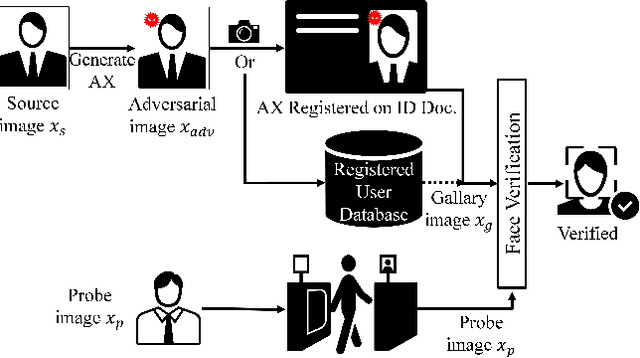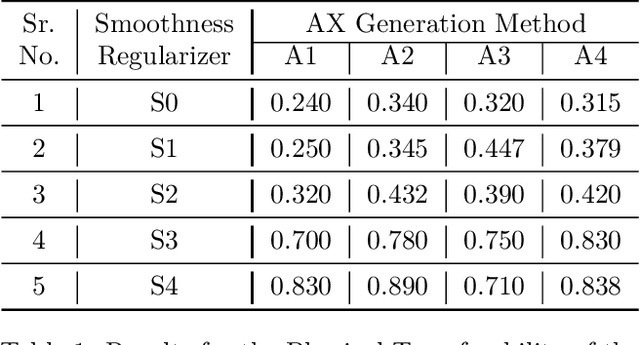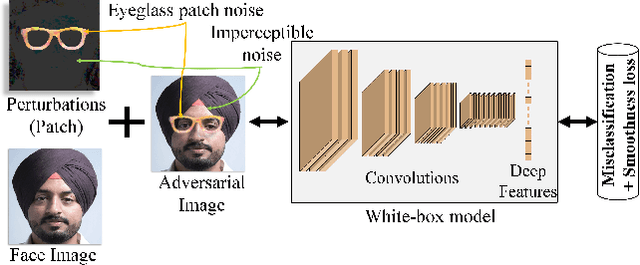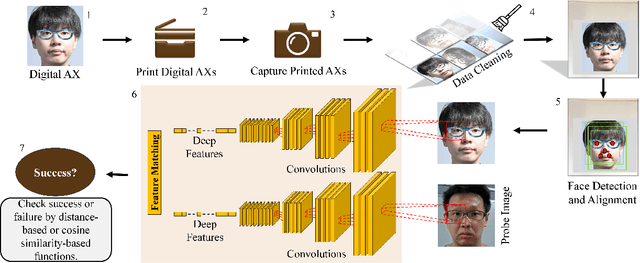Powerful Physical Adversarial Examples Against Practical Face Recognition Systems
Paper and Code
Mar 23, 2022



It is well-known that the most existing machine learning (ML)-based safety-critical applications are vulnerable to carefully crafted input instances called adversarial examples (AXs). An adversary can conveniently attack these target systems from digital as well as physical worlds. This paper aims to the generation of robust physical AXs against face recognition systems. We present a novel smoothness loss function and a patch-noise combo attack for realizing powerful physical AXs. The smoothness loss interjects the concept of delayed constraints during the attack generation process, thereby causing better handling of optimization complexity and smoother AXs for the physical domain. The patch-noise combo attack combines patch noise and imperceptibly small noises from different distributions to generate powerful registration-based physical AXs. An extensive experimental analysis found that our smoothness loss results in robust and more transferable digital and physical AXs than the conventional techniques. Notably, our smoothness loss results in a 1.17 and 1.97 times better mean attack success rate (ASR) in physical white-box and black-box attacks, respectively. Our patch-noise combo attack furthers the performance gains and results in 2.39 and 4.74 times higher mean ASR than conventional technique in physical world white-box and black-box attacks, respectively.
 Add to Chrome
Add to Chrome Add to Firefox
Add to Firefox Add to Edge
Add to Edge